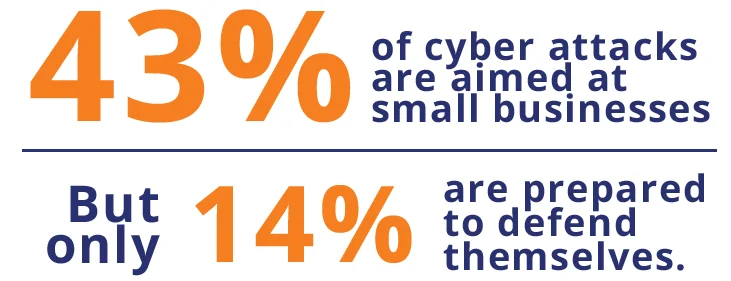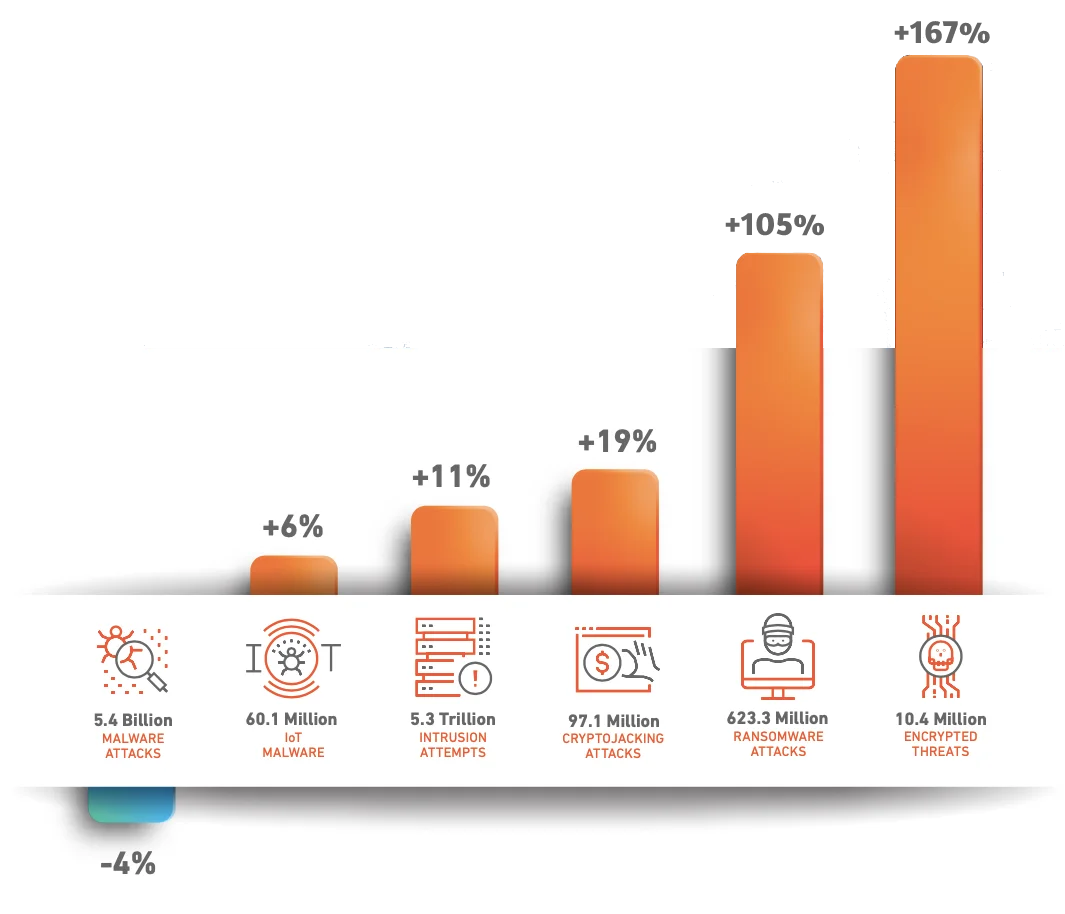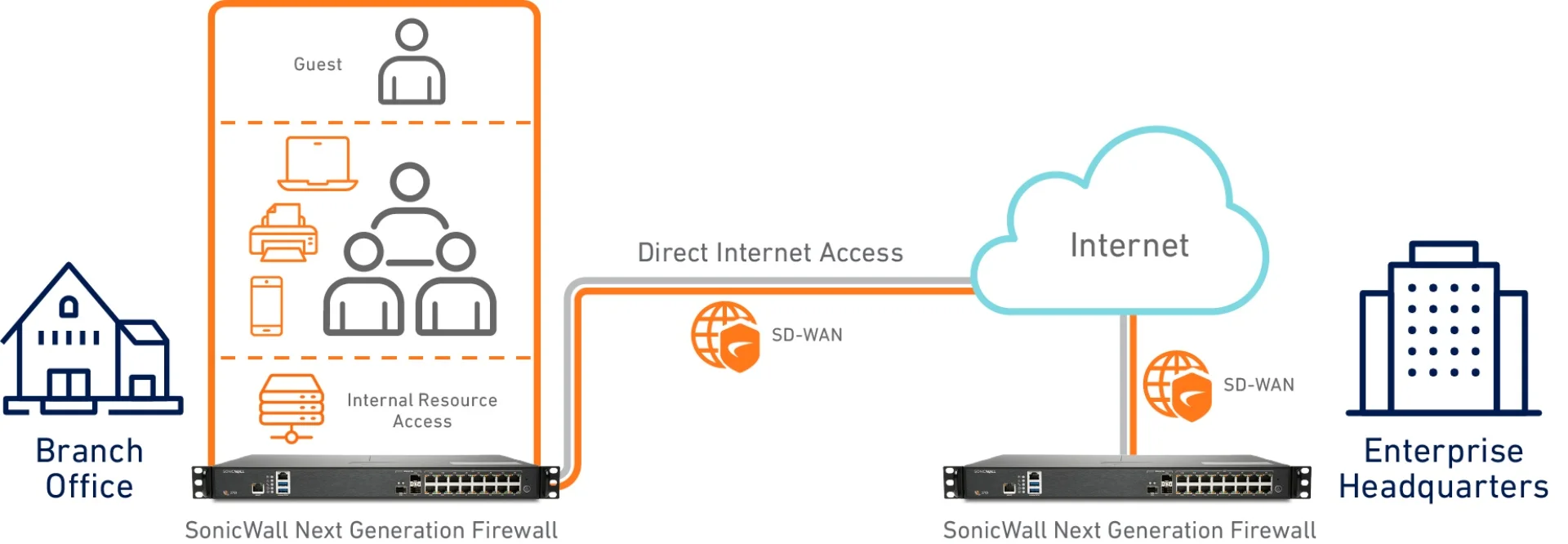Home » Why corporate cyber security for small, medium and large businesses
What can your business do to ensure the security of its systems? Is there a way to prevent attacks?
Data is just as valuable as any physical assets in today’s digital world. In the aftermath of a cyberattack, restoring normal service and recovering lost data takes a long time and is often very costly. As well, the topic of corporate cyber security has always been a bit challenging for those who aren’t responsible for it daily since it involves so many technical terms.
The frequent appearance of security threats as legitimate incidents, the severe disruption and financial impact they can have, and the limited resources available to respond to and recover from incidents pose unique challenges for companies concerning cyber security.
As a business owner, the first thing you need to consider in terms of corporate cyber security is how to protect yourself. Businesses, regardless of size, are responsible for ensuring the safety and privacy of their employees and organisations.
Whether you run a small business from your home or a multi-million dollar food chain, you must take certain precautions to protect your sensitive information.


Understanding and keeping up with new technology, security trends, and threat intelligence requires constant monitoring. Nevertheless, protecting information and assets is essential against cyber security threats, which can come in many forms.
Some types of corporate cyber security threats include:
The malicious computer software that can harm your system – Malware.
It can be any file or program that creates problems for your computer. Worms, viruses, Trojan, and spyware are all common examples.
Interaction with humans and social engineering techniques may be employed to acquire sensitive information protected by security procedures by tricking users into violating security measures. Similarly, fraudulent emails or texts that resemble those from reputable or known sources are called phishing messages. Often, these messages are random attacks designed to steal sensitive information, such as credit card or login information.
The term “Advanced Persistent Threats (APT)” refers to long-run targeted attacks in which an attacker infiltrates a network and remains undetected for a long period until attempting to steal data.

As the world transforms into a digital world, corporations worldwide benefit from the perks that come with the internet. With the internet, companies can access big data and analytical tools. However, with this internet growth comes a major security threat: cybercrimes. The number of cyberattacks is rising as hackers become more sophisticated and use technology tools to penetrate sensitive systems.
Several of these crimes have a harmful impact on millions of people, curtailing several high-scale operations and posing a threat to massive databases. The only real solution to cybercrime is corporate cyber security, which is why it is important for businesses.
As technologies are rapidly advancing and being used in businesses, a single-stop solution for cyber security for large corporations should be more beneficial than cost-prohibitive. The emergence of technologies continues to be one of the driving forces behind booming businesses. So, businesses need a one-stop solution to cyberattacks: corporate cyber security.
Unstable website performance; infected hosting server will cause your website to crash, leaving your online customers exposed to unsecured networks. This can cause your customers to lose trust in you and your website and undermine your brand’s reputation.
Cyber security for businesses can help you navigate such issues before they become too difficult to handle. The technology ensures the safety of business networks and customer information. In addition to being protected from damaging viruses, your system will run more smoothly online.

A good antivirus, as well as anti-malware, will help you keep your corporations safe from viruses and malware. The software will defend your computer from ransomware and malware. Installing a corporate cyber security solution can also find vulnerabilities in operating systems that your organisation is unlikely to upgrade for weeks – an important entry point for malware.
Backups can help restore lost or compromised data in the event of system failures, accident deletion, disasters, or theft. These are more beneficial when updated frequently. Corporate cyber security companies back up your data while blocking unauthorised access.
A firewall is considered the heart of any corporate cyber security solution. If your business does not own one, it will be at a serious disadvantage. Your firewall monitors the network traffic as soon as your website or web application is connected to the Internet.
Consolidated Solution
Select and Switch can support your business with corporate cyber security solutions which provide comprehensive protection against a wide range of issues. A secure network includes a firewall, anti-virus, anti-spam, wireless security, and online content filtering.
Prevents Adware
A form of computer virus known as adware, which displays advertisements on the computer, is fairly common. These adverts can, however, seriously impact your productivity and can often let other viruses enter your computer if you accidentally click on them. A secure corporate cyber security blocks them before users intend to connect to them.
Protects Productivity
Viruses slow personal computers to a crawl, making it nearly impossible to work on them. As a result, your employees will lose a lot of time and can often bring your entire business to a standstill.
Protects Personal Info
In the digital age, personal information has become a highly valuable commodity. In the event that a virus is able to obtain personal information about your employees or customers, they may be able to sell this information or even steal their money.
Allows Employees to
Work Safely
If your business does not have the best corporate cyber security company to work on your cyber security issues, both you and your employees are constantly at risk from cyber-attacks. When your system, or even individual computers, become infected, you may have to replace the computers, which can greatly hamper their productivity.
Train employees in security principles – Develop basic cyber security practices to protect sensitive business information and communicate them regularly to all employees. Create a set of rules that describe handling and protecting customer information. Explain the consequences of violating these rules.
Provide firewall security for your Internet connection – A firewall is a collection of related programs that prevent outsiders from accessing data on a private network. Make sure you keep a firewall between your internal network and the Internet. Work from home employees should have their home systems protected with firewalls. Ensure that all computers used in conducting your business – including laptops – are firewalled.
Backup important business data and information – Back up the data on all the computers in your business every week or automatically. The critical data includes word processing documents, spreadsheets, databases, financial files, payroll files, and accounts receivable/payable files. You should perform a weekly or automatic backup of the data.
Access control for computers and network components – Ensure that unauthorised individuals cannot access or use business computers. If you leave your laptop unattended, ensure that it’s locked up. Laptops are a particularly easy target for theft.
Secure your Wi-Fi networks – Make sure your workplace Wi-Fi network is secure and hidden. You should configure your wireless access point or router so that it does not broadcast the SSID (Service Set Identifier) of your Wi-Fi network.
Copyright © 2024 Select and Switch



